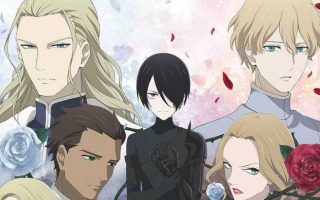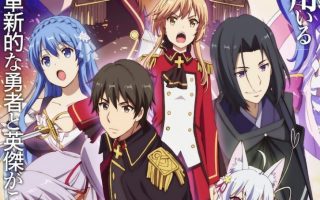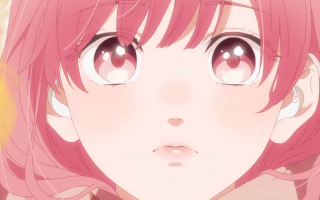I don’t want to write another post-mortem about a light novel anime adaptation. The Reign of the Seven Spellblades anime technically isn’t a bad adaptation; unlike the Spy Classroom anime it covers all the plot points in a coherent manner. While the production values are modest, there are some action highlights here and there, like the extensive garuda fight in episode 4. Episode 6 also pulled off a great tone shift, enough to cause a mild stir among anime-only viewers.
And yet, despite loving the light novels for their endless imagination, I had this weird thought when watching the first episode of the anime: “Doesn’t this story seem…generic?”

I always knew, of course, that the elevator pitch for Reign of the Seven Spellblades is “what if Harry Potter but the students have swords and it’s edgy”, which hardly sounds like an original concept. But I am reminded that storytelling is entirely about the telling. The series establishes a unique narrative tone in two distinct ways:
- The magic is full of wonder and mystery
- Every mage character, regardless of how much of a “good guy” they are, is unhinged in some way
You can see this on display in the anime to an extent. For example, there are scenes where magical creatures are shown doing their own thing in the background, adding a sense of whimsy to the world. Also, while a lot of elements in isolation take cues from Harry Potter, the labyrinth is somewhat different in that regard. It stands out as a no-man’s land where students and monsters alike go rogue. Most of the story’s extracurricular scenes take place there—not coincidentally, it’s also the location of the darkest scenes.

As for the second point, this is something that primarily becomes evident over time. It makes sense that Oliver’s true motivations come to light almost straight after a seemingly benign upperclassman student reveals herself to be a mad scientist type. The fundamental nature of a mage is that they proudly pursue their obsessions to the extent that they may seem inhuman, and this theme is repeated again and again across various characters’ subplots.
This knowledge serves to recontextualise Nanao’s interactions with Oliver in the earlier episodes, which probably came off as strange and stilted at the time. When she duels Oliver in episode 2, the two of them experience a peculiar spiritual connection. Contrary to his previously unassuming personality, Oliver experiences a sudden passionate desire to fight her to the death. The audience doesn’t know Oliver well enough at this point to understand why this is so deeply out of character for him, and the dialogue does not address it directly. It is only in retrospect that it is clear that Oliver’s obsession with his murdered mother informs a lot of his relationship with Nanao in ways that not even he understands himself.

Yet for all that, even after nine episodes, it’s hard to shake the impression that Reign of the Seven Spellblades is a rather cookie-cutter anime set in a magic school. Admittedly, the story does spend a lot of time on petty conflicts which just amount to “cocky student challenges Oliver and co. to a fight, only to quickly get owned”. But even the more interesting subplots, like the Pete’s genderbending and Katie’s civil rights activism, feel sort of weightless in context. It’s as if the series throws a bunch of elements at a canvas, but not with enough commitment to let anything stick, and thus the picture as a whole lacks personality.
Perhaps the visual direction lacks the finesse to effectively tie the different elements together, or maybe this kind of story simply flows better in prose. The fun of the light novel is that each chapter tells you something new about the world, and it all ends up figuring into the climax of the volume in some way. It’s not irrelevant exposition for the sake of world-building; the series still keeps you on your toes even eight volumes in. It’s honestly up there among my favourite light novels, full stop.
But it’s not like I can simplistically say “the light novel is genius but the anime sucks” because… I have to be honest… seeing some scenes adapted to screen did make me realise how fricken cheesy they were on a conceptual level. Like Nanao spontaneously activating a Spellblade that makes her sword swing faster than light. Or, like, any time Oliver puts on that edgy masquerade mask.


At this point, I have to remind myself that the source material spends multiple volumes on a tournament arc, and I have to frankly admit: “Yeah, this light novel is just inherently like that.”
But hey, isn’t that the appeal of an anime Harry Potter? Adding some ridiculous Shonen Jump nonsense to a tried and true formula? I’m not going to hold any of that against Reign of the Seven Spellblades. Maybe the real problem with the anime is that it doesn’t commit hard enough to the things that make this series goofy but also somehow awesome.
At any rate, if you find any element of Reign of the Seven Spellblades interesting or entertaining, I highly recommend checking out the light novels to experience the story at its full potential. Volume 5 features an absolutely glorious fight, an indisputable highlight of the entire medium. Read it for yourself and imagine how it would look with bombastic sakuga.




